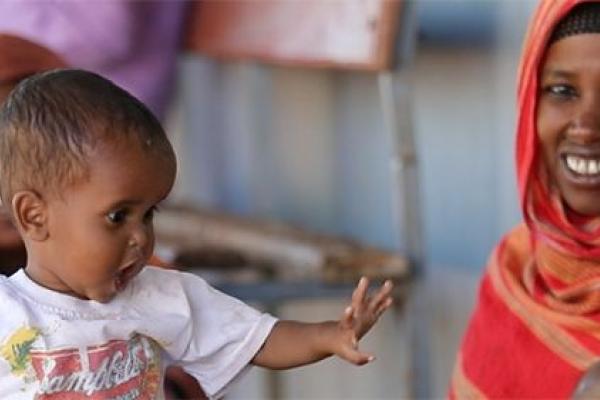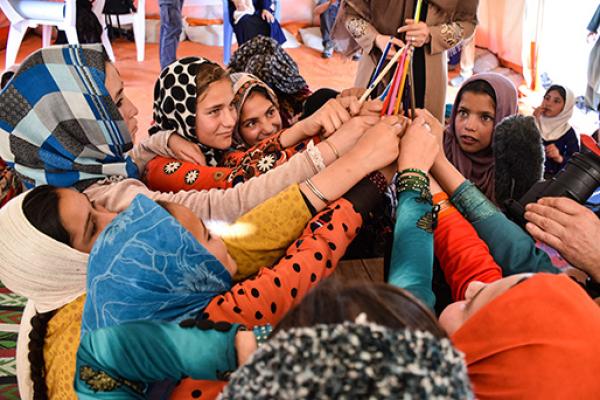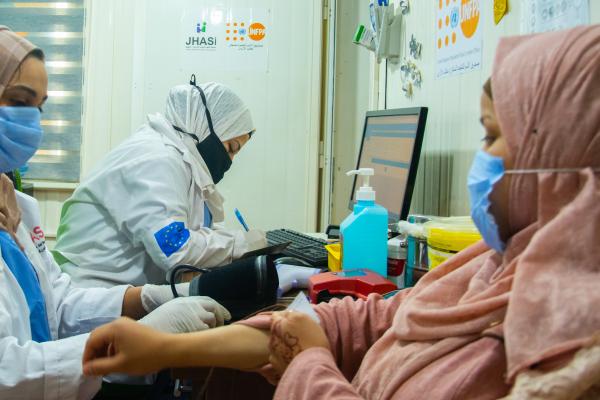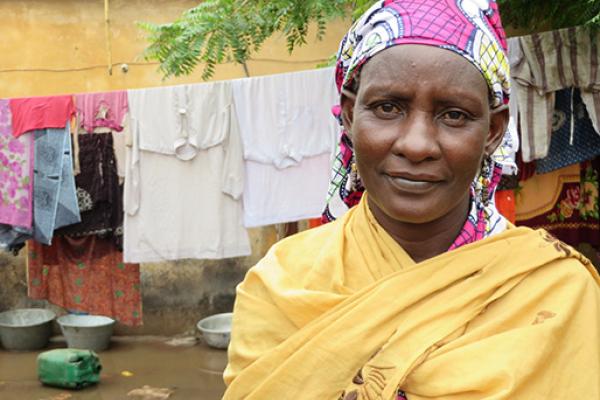In the Tigray region of Ethiopia, the convergence of the COVID-19 pandemic and conflict at the end of 2020 resulted in a significant disruption to education. Approximately 2.4 million school-aged children were denied the right to education for 3 academic years, with 88% of school infrastructures damaged. Child protection risks escalated, exposing children to various harms and trauma.
Following the peace talks, schools in Tigray reopened in May 2023. However, challenges such as poor school conditions, increased number of students with special needs, and reduced parental capacity to support their children's education continue to pose barriers for children to access education.
According to the Tigray Regional Education Bureau, only 40% of school-aged children have enrolled in school since their reopening. Prolonged absence from school increases children’s vulnerability to various forms of violence, and the disruption in their education may lead to child labour, trapping them in a cycle of poverty. Their mental health deteriorates.
This situation disproportionately affects vulnerable groups, particularly girls living in poor households or displaced communities, putting them at higher risks of exploitation, child marriage, and early pregnancy. Girls, in particular, face heightened risks when out of school. In Tigray, due to the closure of schools for so many years, adolescent female students enrolling often feel unsafe and uncomfortable attending school during their menstrual cycle. School toilets that are not gender-segregated lack doors, locks and privacy further exacerbate the difficulties faced by adolescent girls.
In response to the multifaceted challenges, Plan International, with the support of the European Civil Protection and Humanitarian Aid Operations,initiated an integrated Education and Child Protection Emergency Response in Tigray since June 2022. The primary objective is to meet the urgent needs of crisis-affected children, ensuring their access to education and protection services.
Wegahta, a 16-year-old girl from Amdiweyane kebele (village) in Samre woreda in South-East Tigray, faced immense challenges due to the devastating war. Orphaned by the conflict and surviving physical and psychological abuses, Wegahta lived with her elder sister. Some school programmes resumed in October 2022, but Wegahta, like many others, couldn't continue learning due to hunger, lack of materials, security concerns, and limited access to Mental Health and Psychosocial Support (MHPSS) services.
Wegahta spoke to PLAN about the challenges she faced during the conflict, highlighting the shortage of school materials (exercise books, pens, pencils, books), damaged classrooms, overcrowded seating, non-functional toilets, and overall discomfort. She said she would always feel uncomfortable and ashamed when using the toilet. These difficulties contributed to her disinterest in attending classes and frequent absences.

When the schools in Tigray reopened on May 1, 2023, Wegahta, enrolled in Debre-hayla primary school and became one of the 1,413 (757 girls) children targeted by the ECHO-funded project implemented by Plan International. She was also among the 313 vulnerable children targeted in child protection programmes.
To address Wegahta's needs, Plan International implemented comprehensive case management services, providing psychosocial support, access to Child-Friendly Spaces (CFS), and other child protection services in her school and kebele. The project provided cash support, enabling her to meet her basic needs and releasing some of the financial burden weighing on her. Psychosocial support from case workers helped Wegahta and her caregiver restore their psychological well-being.

With scholastic material support, cash assistance, menstrual hygiene management materials (sanitary pads, underwear, soap), and rehabilitated classrooms equipped with combined desks and blackboards, Wegahta continued her education without hesitation.
Plan International's support extended to constructing semi-permanent Menstrual Hygiene Management (MHM) rooms in the school, furnished with necessary materials. This initiative aimed to ensure comfort for girls during menstruation and was coupled with information sessions on MHM.
A female teacher attended the sessions as the MHM focal point, so that girls who may come to the school unprepared during their menstruation could seek the teacher’s assistance who would also provide them with sanitary pads offered by the project.

As a result of the project's assistance, Wegahta progressed in her studies, demonstrating high motivation and a keen interest in learning. She expressed gratitude for the support, emphasizing the importance of the MHM room in addressing menstrual hygiene needs and providing a platform for discussions on critical topics like early marriage, Sexual and Gender-Based Violence (SGBV), and Sexual and Reproductive Health (SRH).
Wegahta highlighted the significance of CFS in providing emotional support through indoor and outdoor games, alleviating psychological distress among students. She urged Plan International to extend its comprehensive services to more vulnerable children, pledging to excel in her studies and contribute to her community after graduation.
Wegahta's story exemplifies the transformative impact of integrated child protection and education responses in post-conflict settings. Plan International's efforts not only facilitated her return to education but also contributed to her holistic well-being, resilience, and aspirations for a better future.






